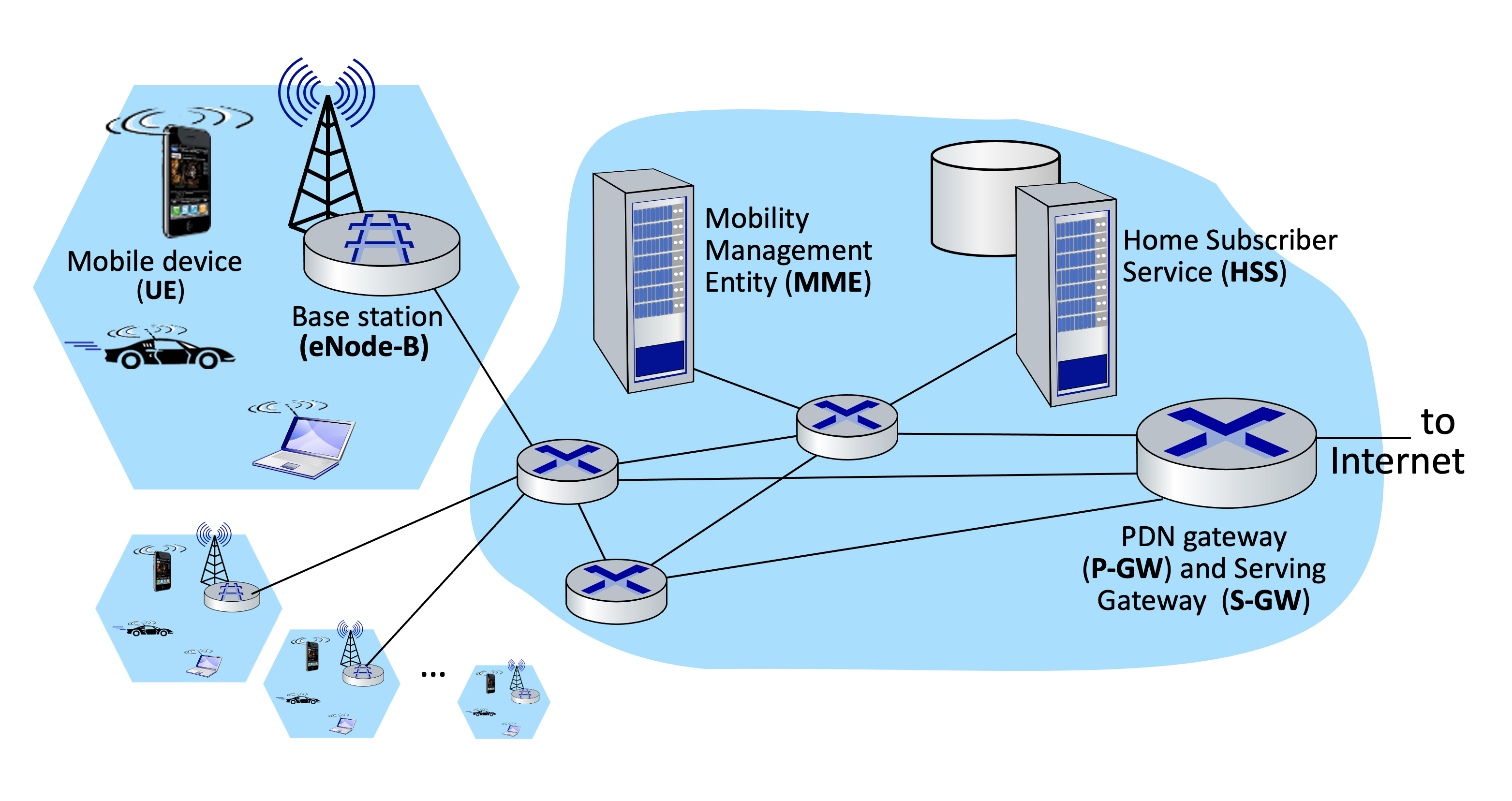Elements of 4G architecture.
Match the function of an element in the 4G LTE architecture with its name, using the pulldown menus.

IMSI.
In 4G LTE cellular systems, what is an International Mobile Subscriber
Identity (IMSI)?
Identity (IMSI)?
Comparing three wireless network types.
Consider three wireless networks that we learned about: WiFi (802.11), 4G LTE, and Bluetooth. Match each of these types of networks to a characteristic on the right.
Power conserving “sleep modes”.
Which of the following statements is true about “sleep modes” that allow a wireless device to “sleep” and occasionally “wake up” as a technique for saving battery life?
Connecting 4G cellular networks together.
Which of the following statements is true about how 4G cellular networks (operated by different carriers/companies) connect together?
Reliable data transfer at the link layer.
Which of the following statements is true about the link-level service of reliable data transfer (using ACKs) in WiFi (802.11) networks and in 4G cellular networks?